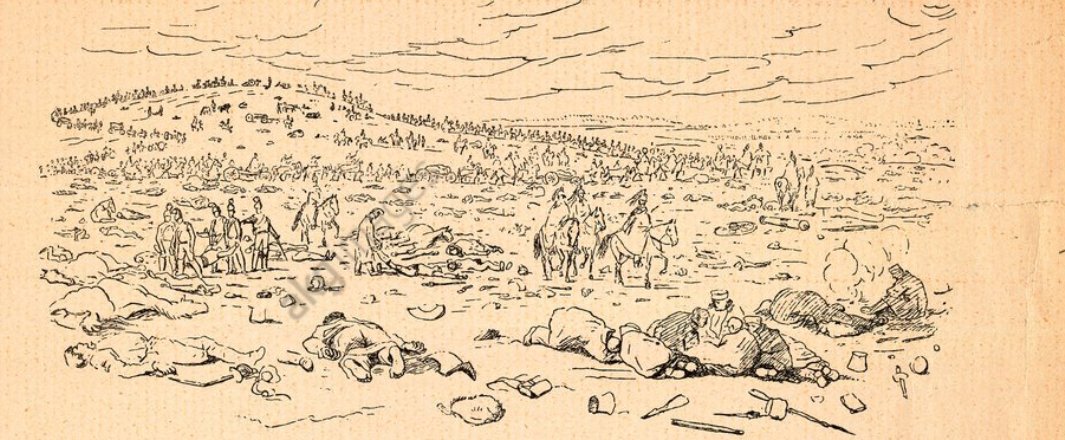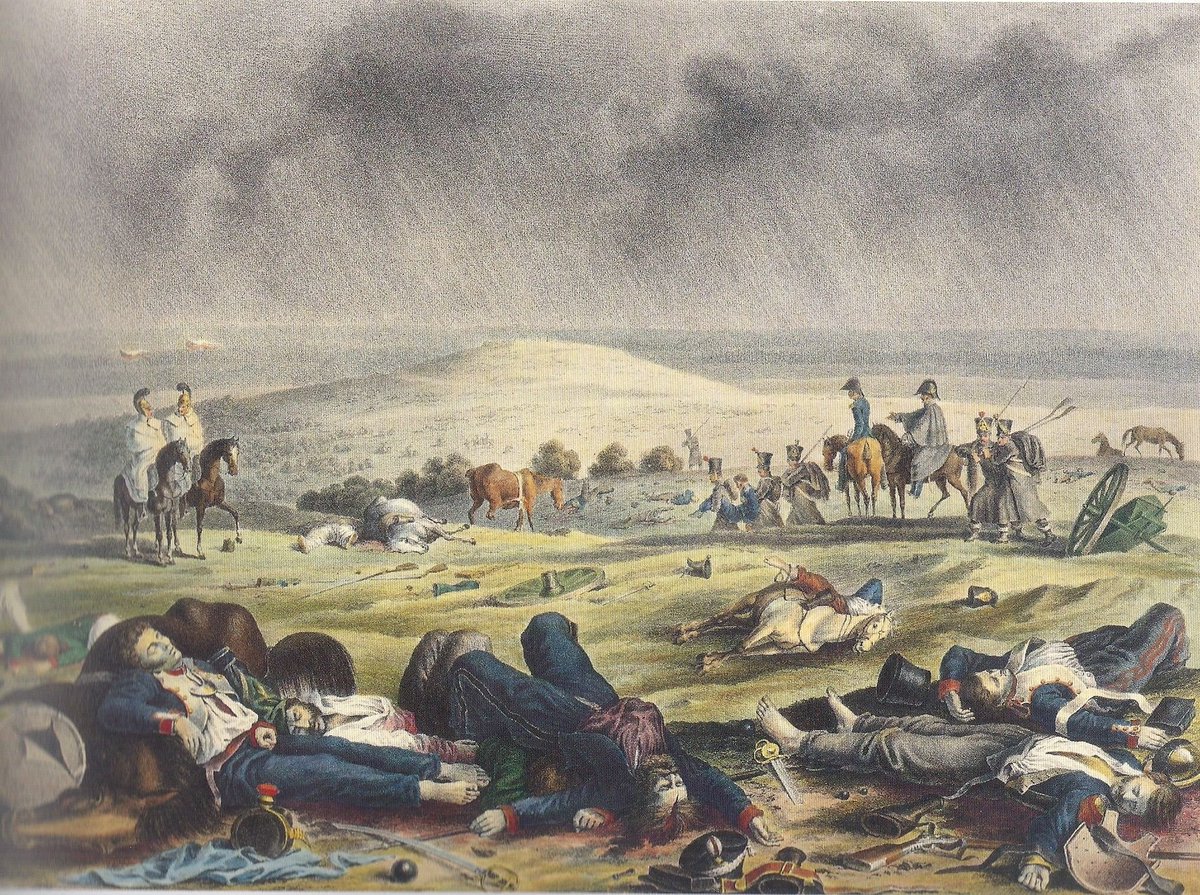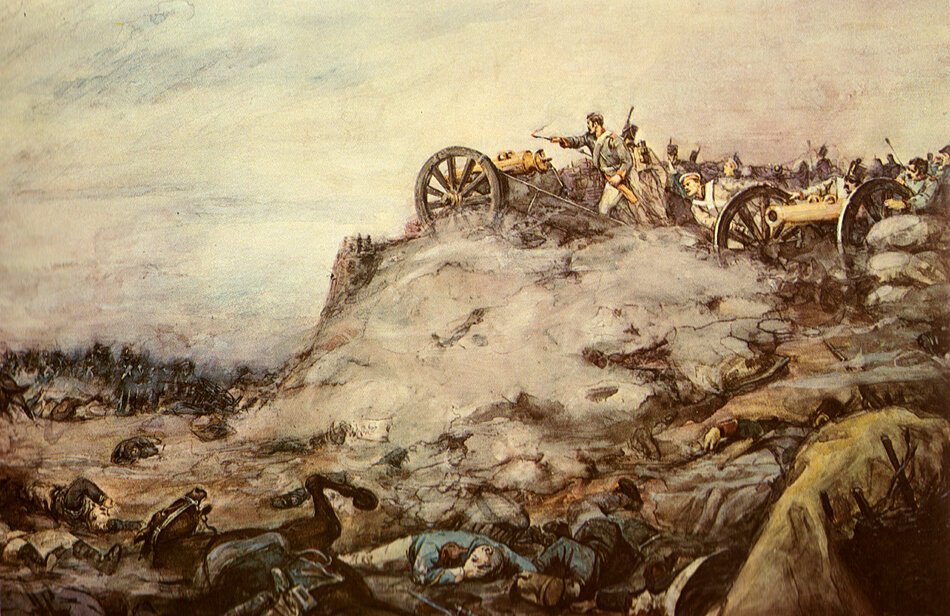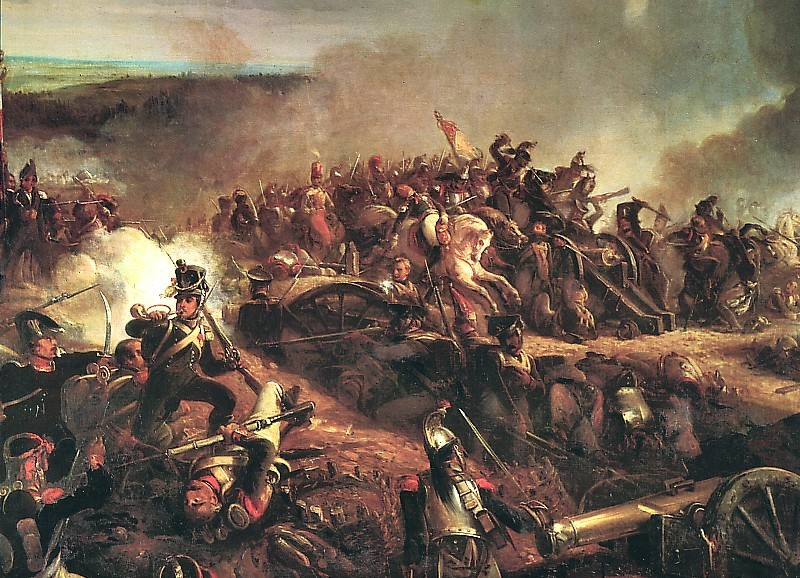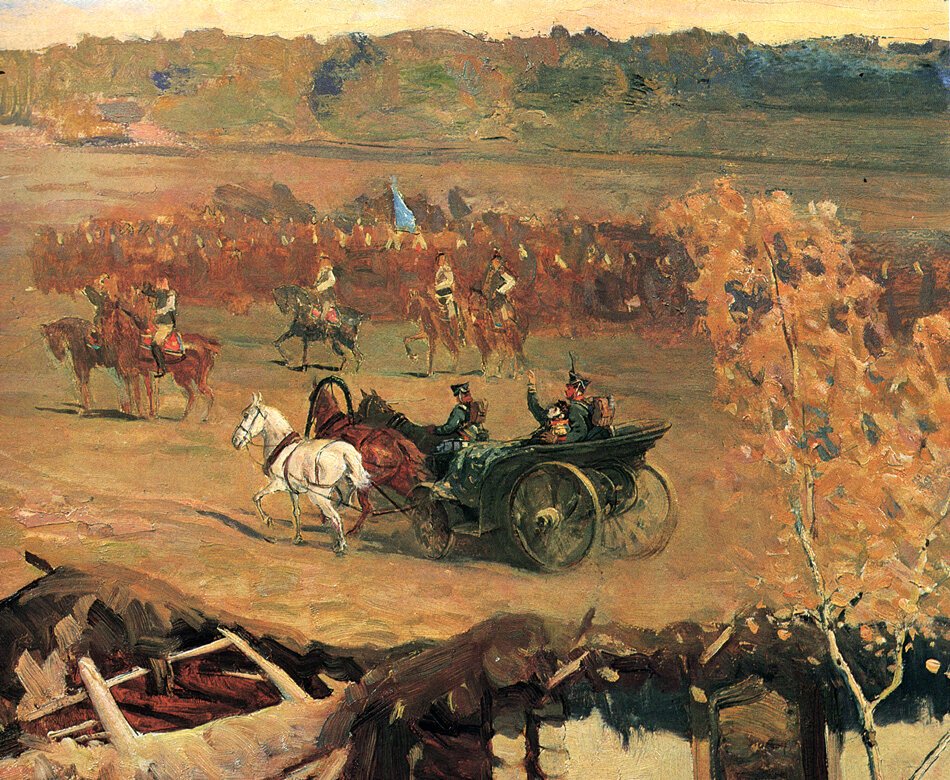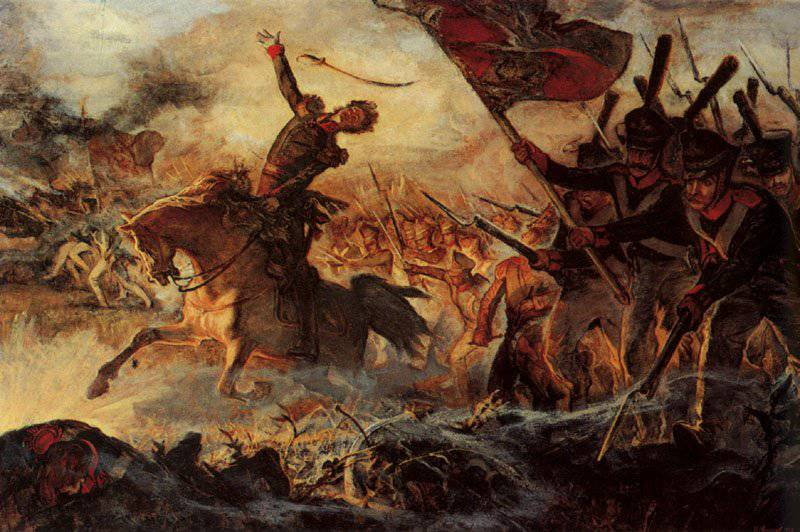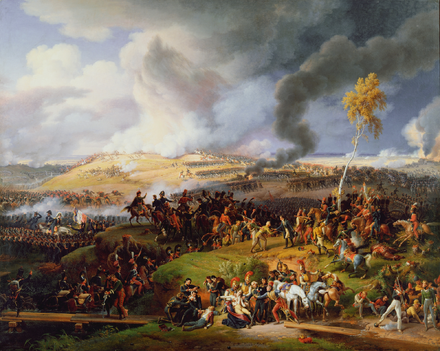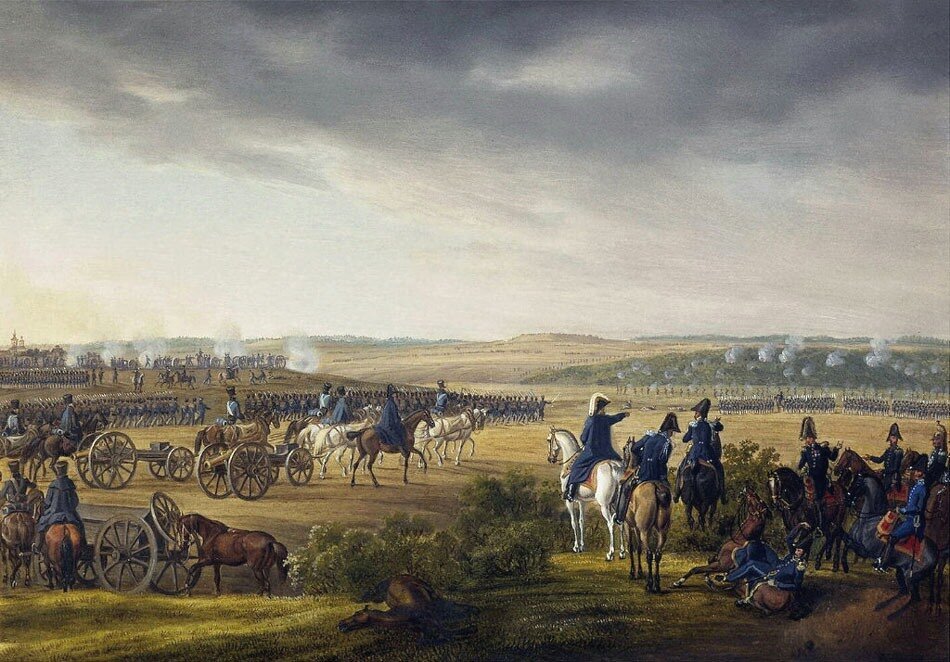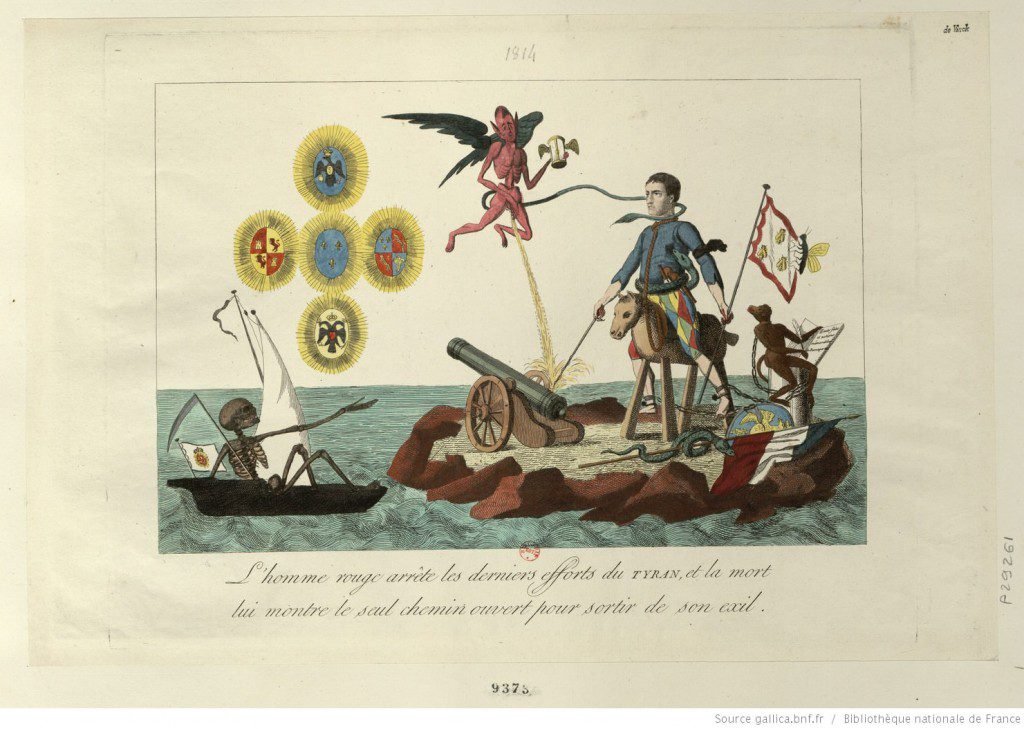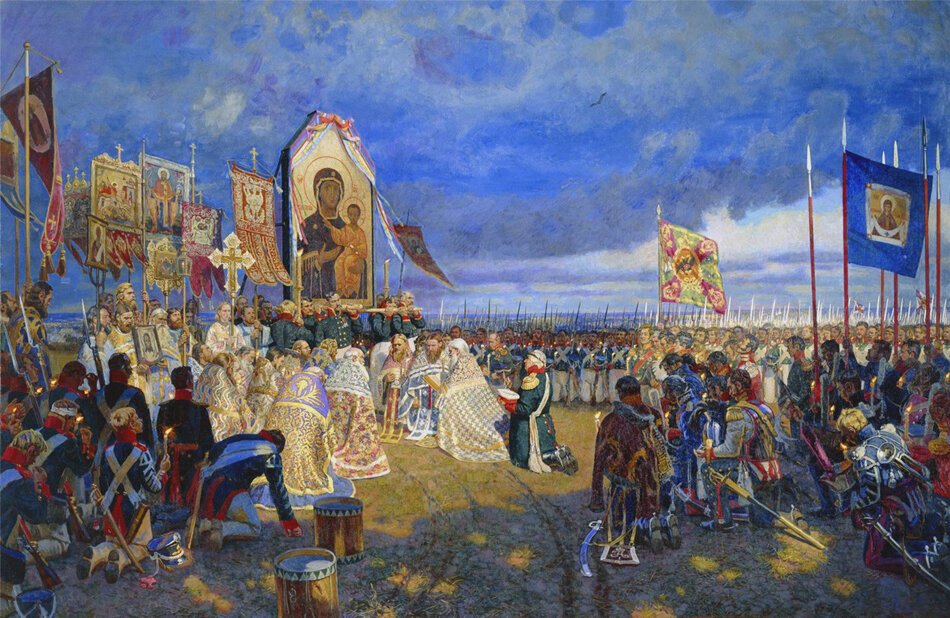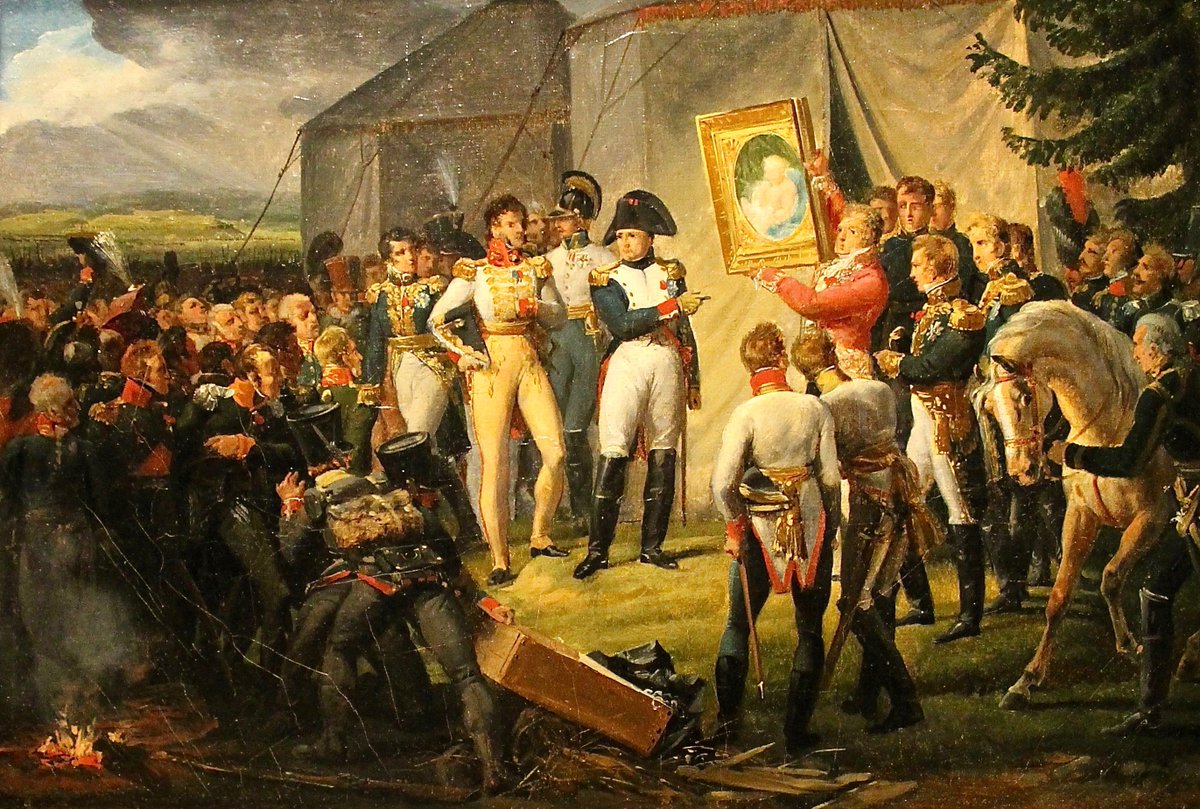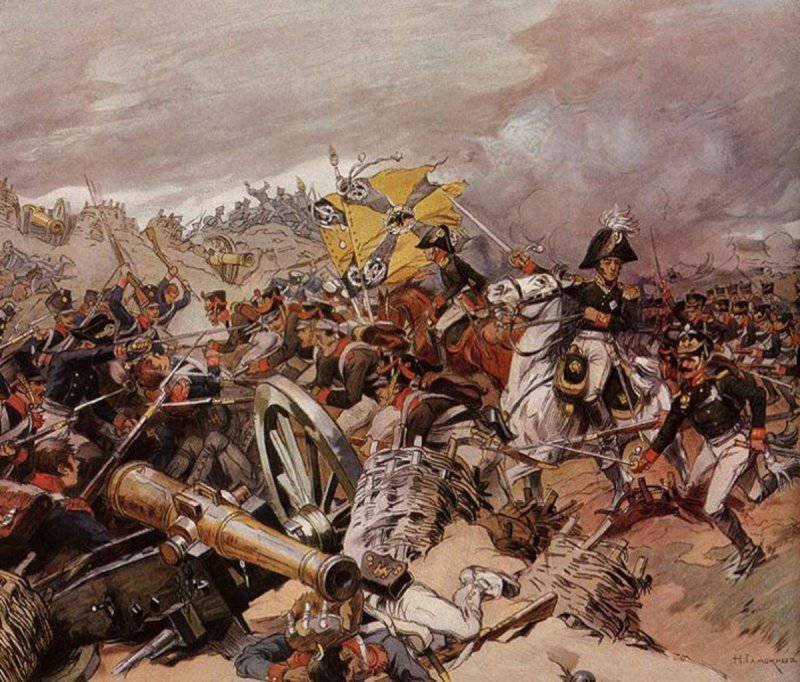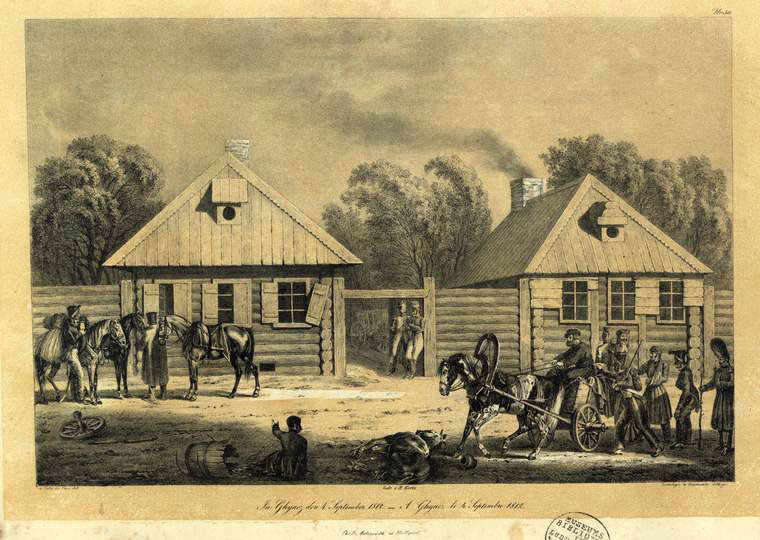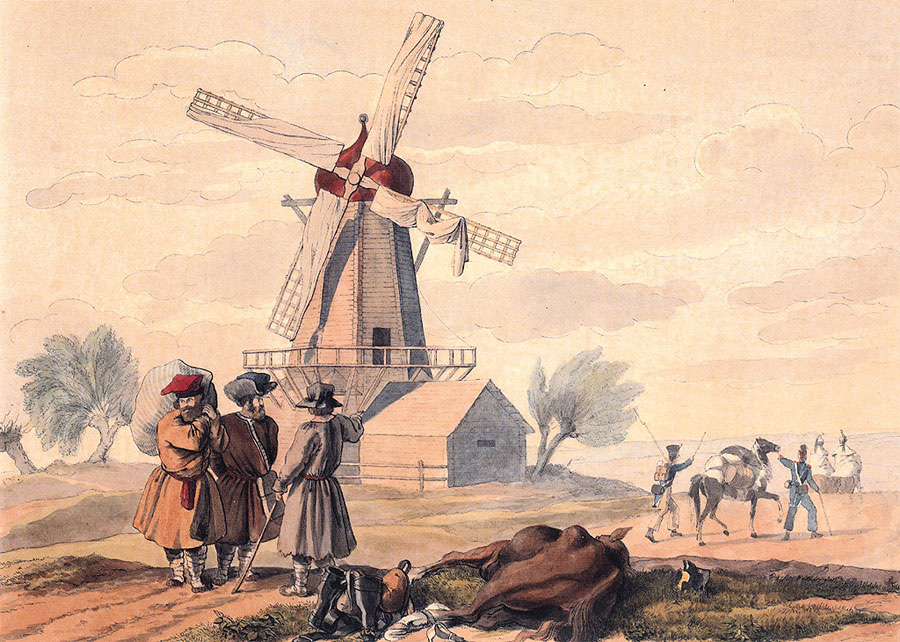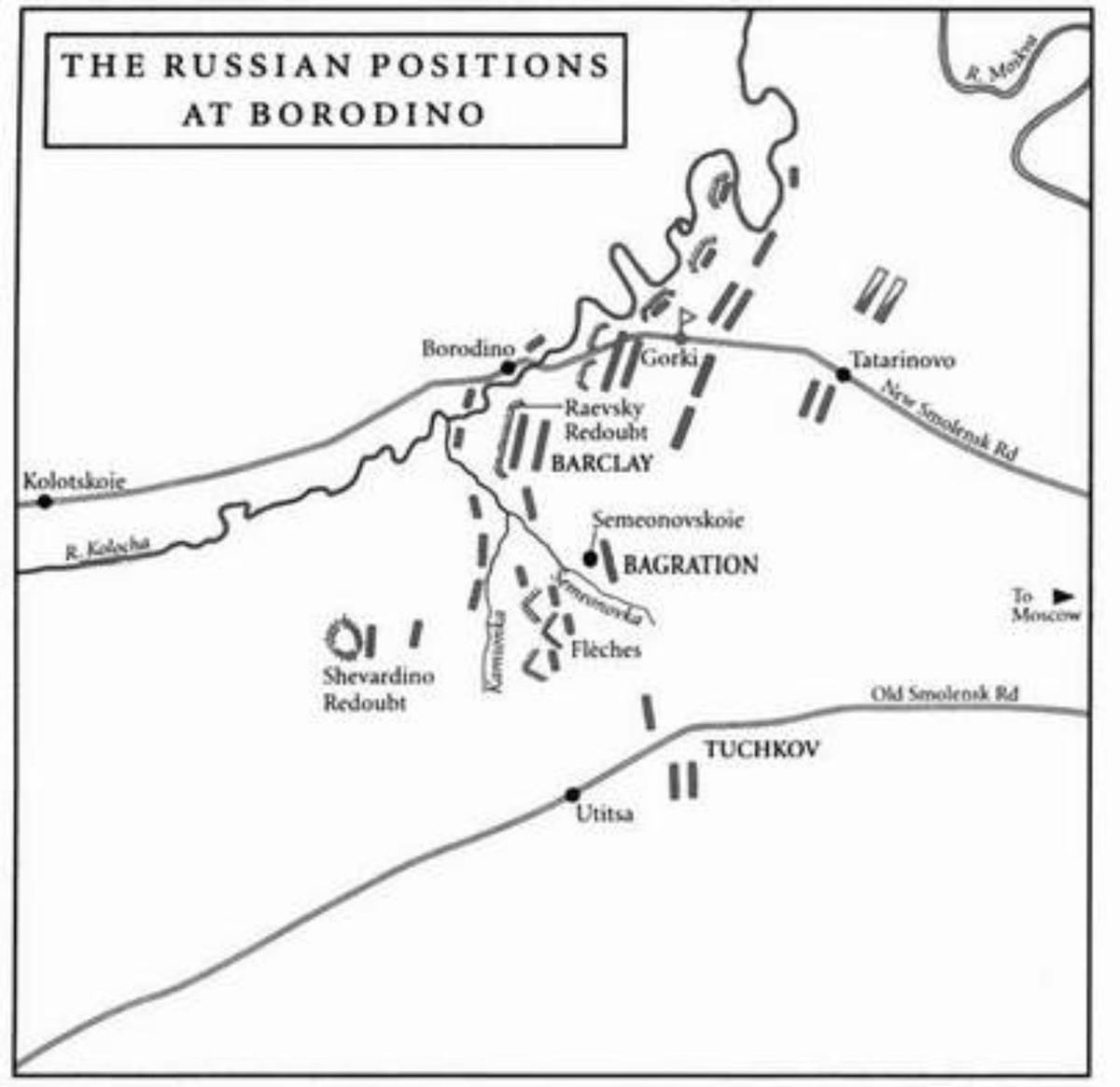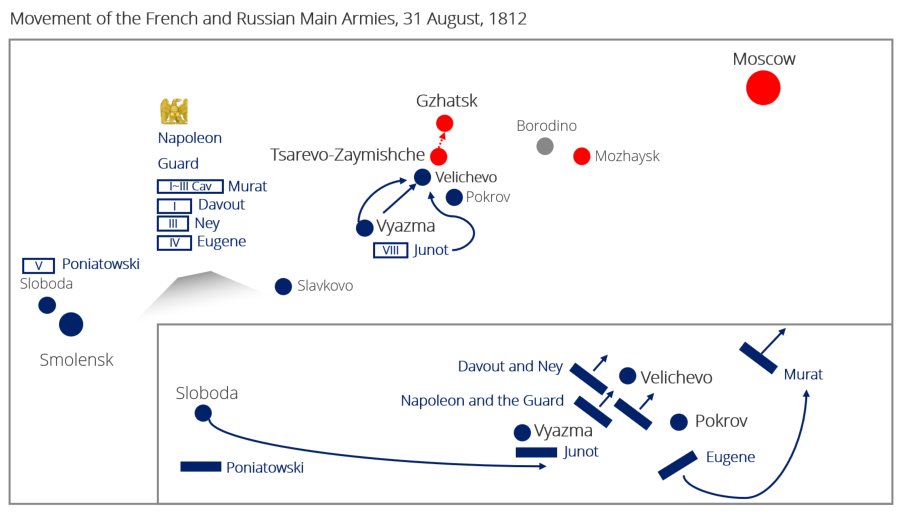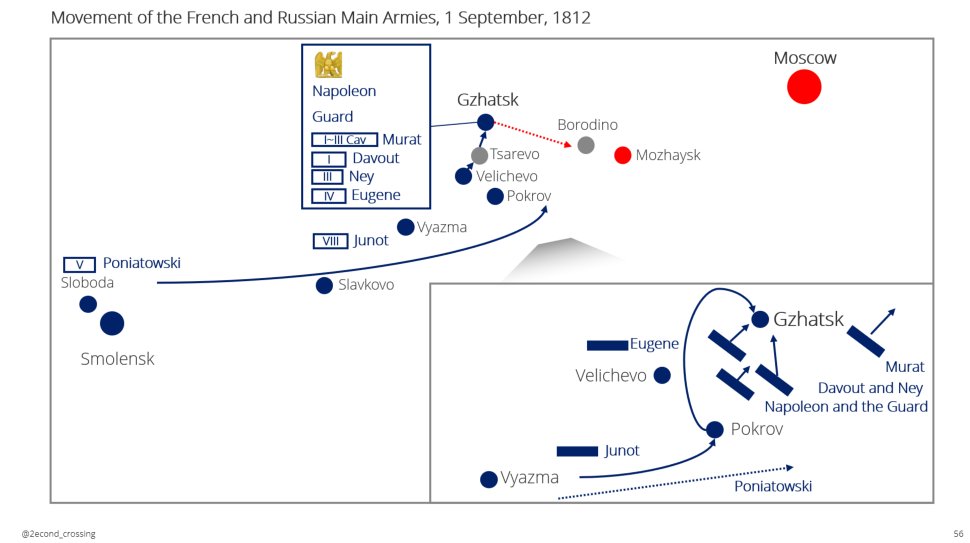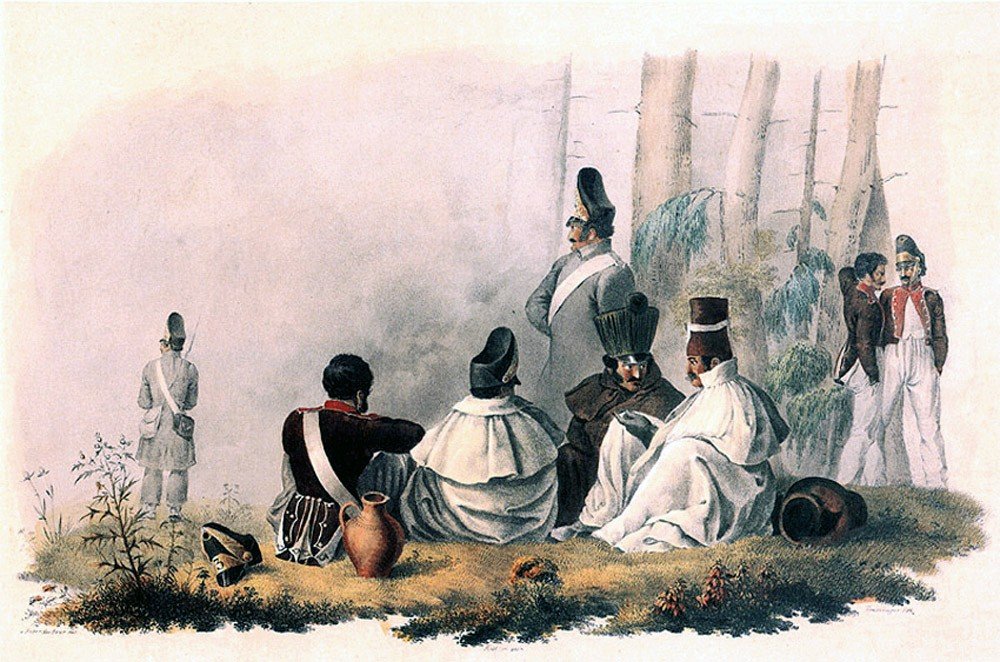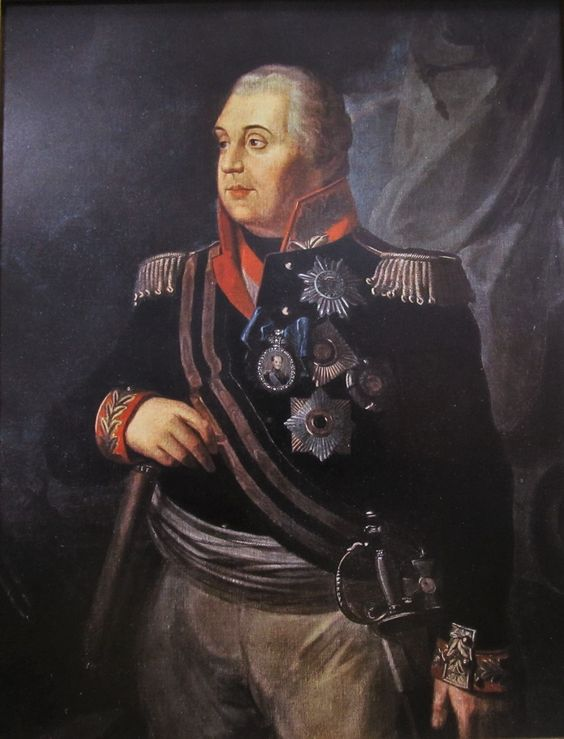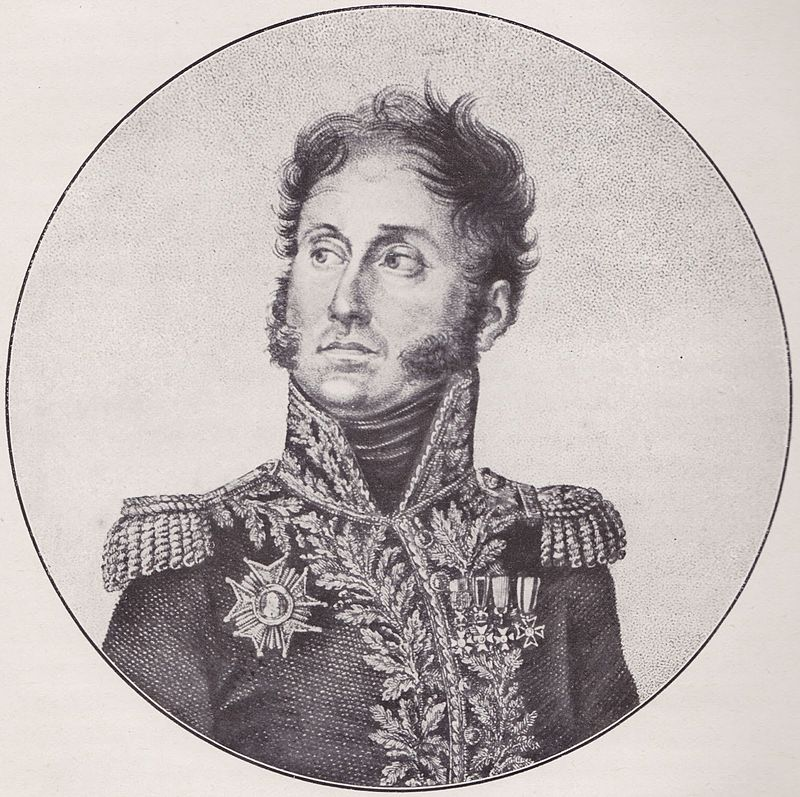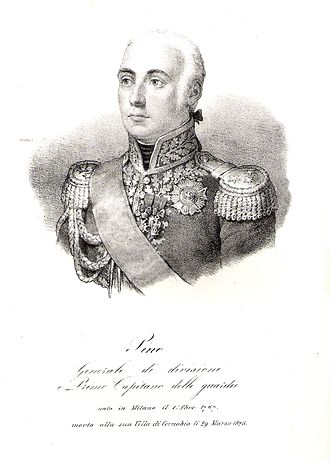
#OTD 5 September, 1812, Murat, Davout, Eugene, and Poniatowski stormed the Shevardino Redoubt defended by Prince Gorchakov.
At night, Napoleon occupied this left flank outpost of the Russians at Borodino, marking a prelude to the bloodiest battle of 1812.
#Voicesfrom1812
At night, Napoleon occupied this left flank outpost of the Russians at Borodino, marking a prelude to the bloodiest battle of 1812.
#Voicesfrom1812

The morning was marked by an ominously "sharp frost."(Vionnet) Napoleon had bivouacked at Girdneva the night before. As Murat continued to pursue Konovnitsyn's rearguard from Gridneva toward the Kolotskoi Convent, the Grande Armée resumed its march across the Old Smolensk Road. 

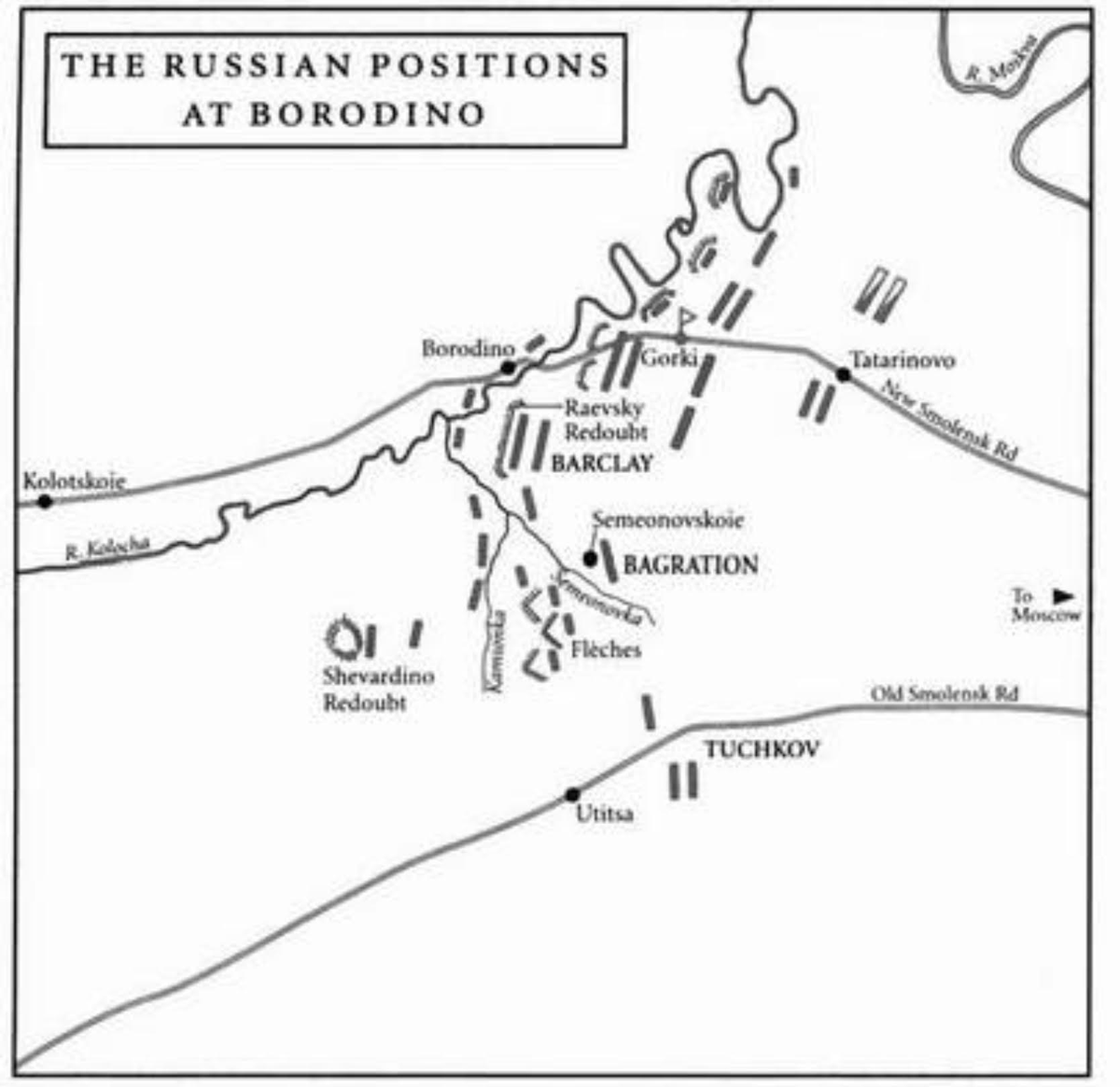
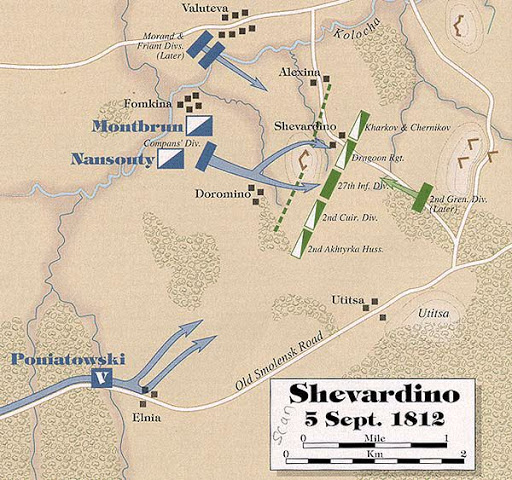
By 14:00, Murat was chasing Konovnitsyn away from the monastery. The army again advanced across the Old Smolensk Road in three columns. Eugene went leftward via Bolshi Sadi, while Poniatowski, guarding Murat and Davout from the right, marched on the same road. (Dodge, Paskevich) 
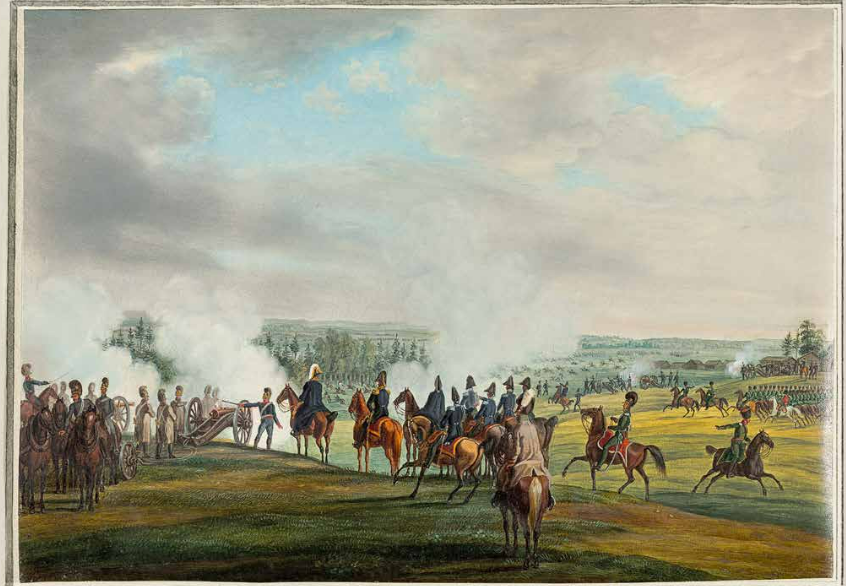
Around 15:00, Konovnitsyn went out of Murat's sight. Napoleon, then at the Kolotskoi monastery, soon received Murat's report on the direction taken by the retreating enemy. Wishing the local monks 'Bon appétit!' in broken Polish, he galloped off northeastward. (Dodge, Zamoyski) 


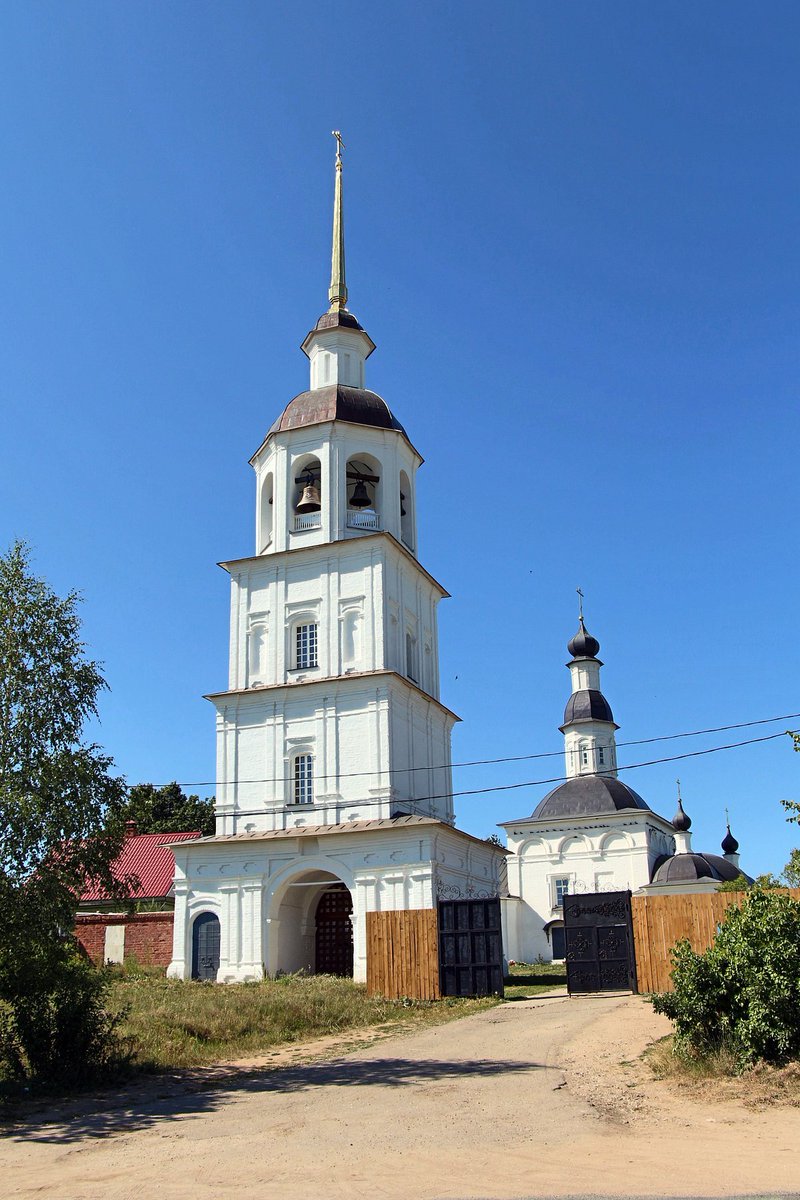
As the Grande Armée approached Borodino, Segur "recognized the field of battle" in the nearby villages of Fomkino, Aleksino, and Kolotsa-all stripped bare of crops and supplies and filled with "clouds of Scythians." The vanguard resumed skirmishes with the Cossacks. (Segur)
Inspecting the terrain on a knoll, Napoleon immediately detected the enemy's weak left flank, compared to the right anchored on the angular ravines of the Kolocha.
He wore "the look of an eagle," as if "he is about to dart with all his might and all his impetuosity."(Segur)
He wore "the look of an eagle," as if "he is about to dart with all his might and all his impetuosity."(Segur)
Napoleon thereupon ordered all to concentrate around the Old Smolensk Road and capture Fomkino, Aleksino, and Kolotsa leading to the Russian left, soon done with ease.
Kutuzov's groundless prediction that the French would advance on his right, therefore, had failed him.
Kutuzov's groundless prediction that the French would advance on his right, therefore, had failed him.
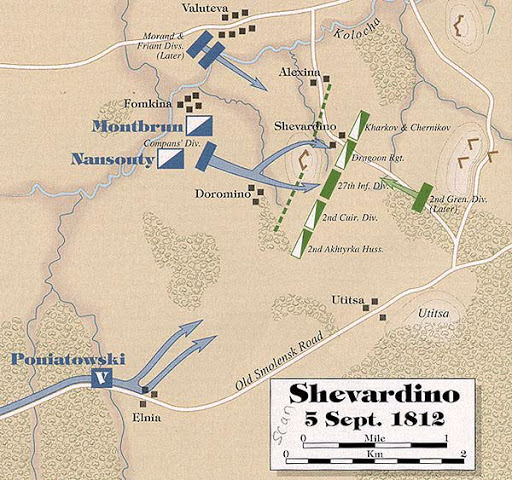
In his memoir, Barclay wrote that Kutuzov had assumed "[the Old Road] could be easily defended by irregular forces." In retrospect, building a redoubt "at the most important heights by this road," defended by Tuchkov's III Corps, "would have completely held the enemy at bay."
At the time, the Russians were still finishing up the earthworks. Kutuzov, at the news, dispatched an improvised corps de bataille commanded by Prince Gorchakov, a nephew of Suvorov. The Second Western army, then at Shevardino, was pulled back to the Semeonvskoye. (Mikaberidze) 

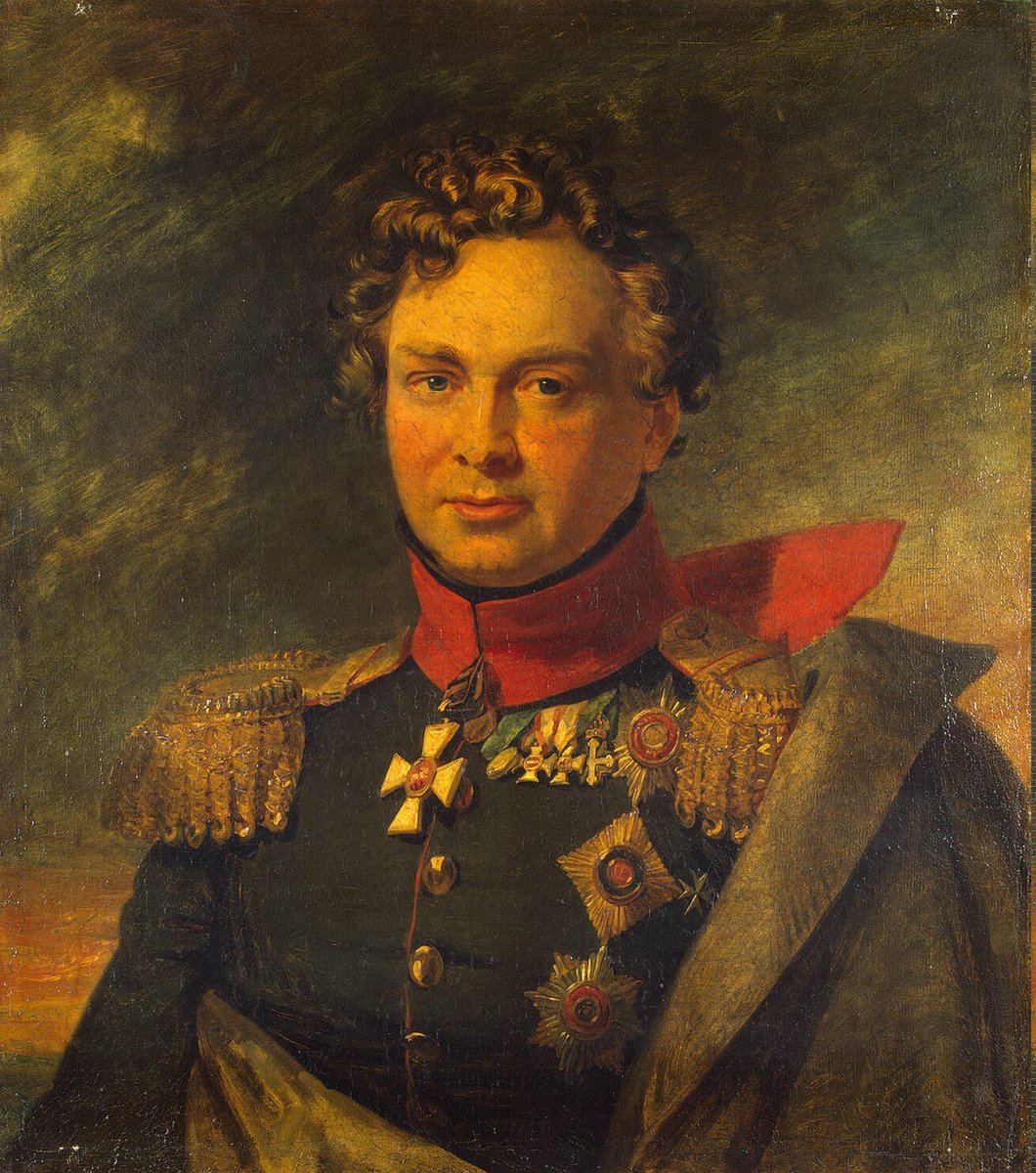

Around 16:00, Murat, after crossing the Kolotsa, discovered the Shevardino Redoubt. According to Labaume of the IV Corps, Napoleon speedily concluded that the enemy "had constructed it to strengthen their left" and "there was nothing for it but to carry this redoubt." 

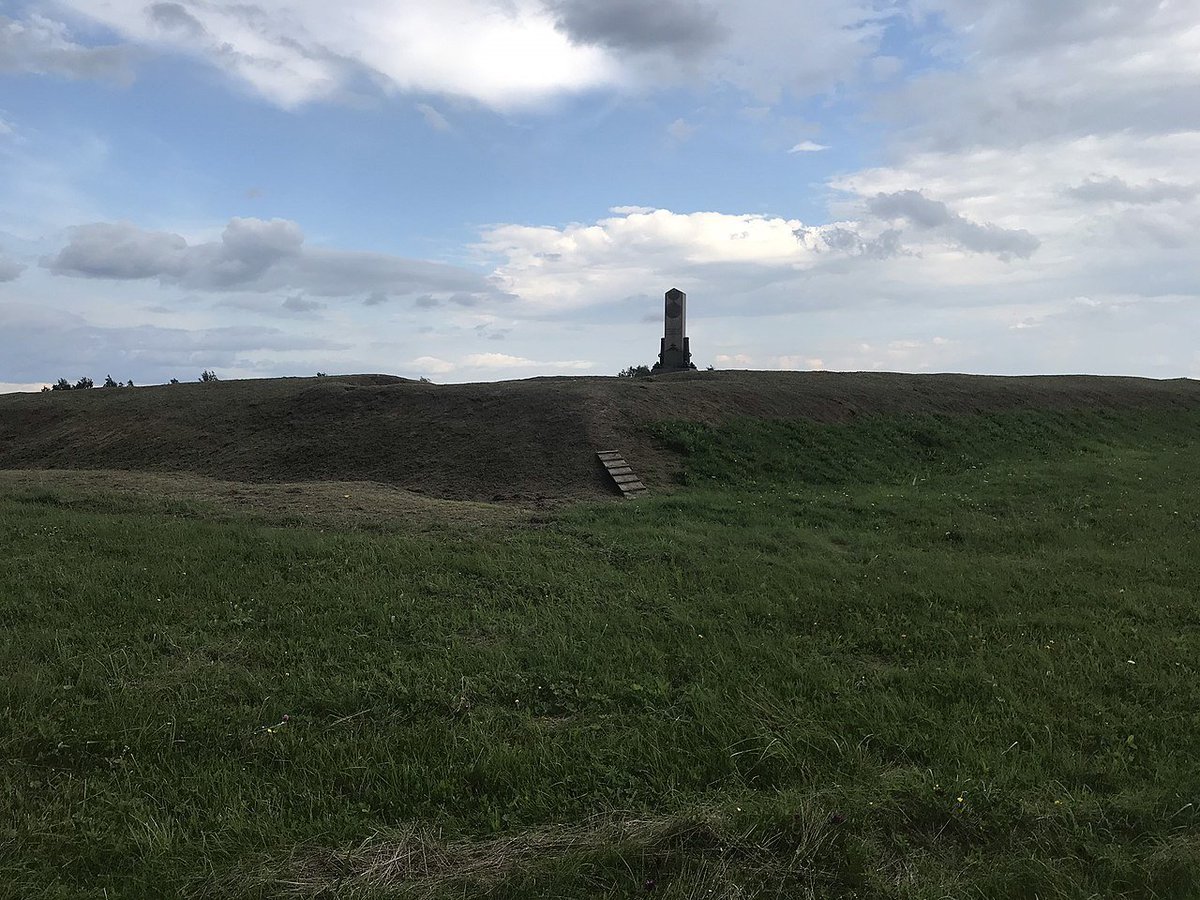

Across the hills, Major General Paskevich of the 26th Infantry Division was able to observe "a mass of cavalry...descending from the heights opposite." He claimed to have spotted Napoleon who, "in this quarter of an hour... figured out the weakness in [their] position."
The defenders of the redoubt, commanded by Gorchakov, consisted of the 27th Division Neverovsky, the 2nd Cuirassier Division, and five regiments of Jägers screening the southward position of Duronino. They totalled about 20,000 men, plus 12 guns. 
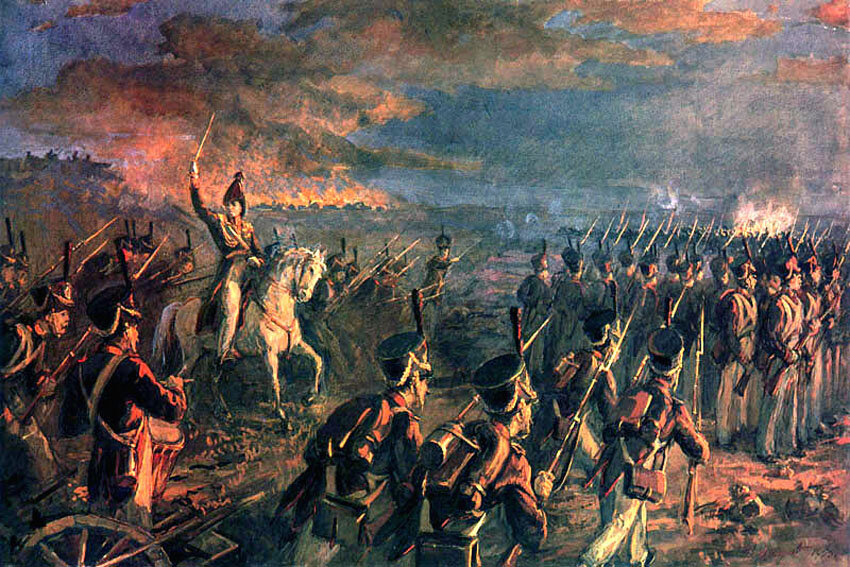
Poniatowski's V Corps launched the first attack at the enemy's extreme left at Duronino, with his cavalry routing the Jägers.
At 17:00, the 5th Division Compans "marched forward with a determination which guaranteed success," occupying the redoubt within an hour. (Labaume)

At 17:00, the 5th Division Compans "marched forward with a determination which guaranteed success," occupying the redoubt within an hour. (Labaume)
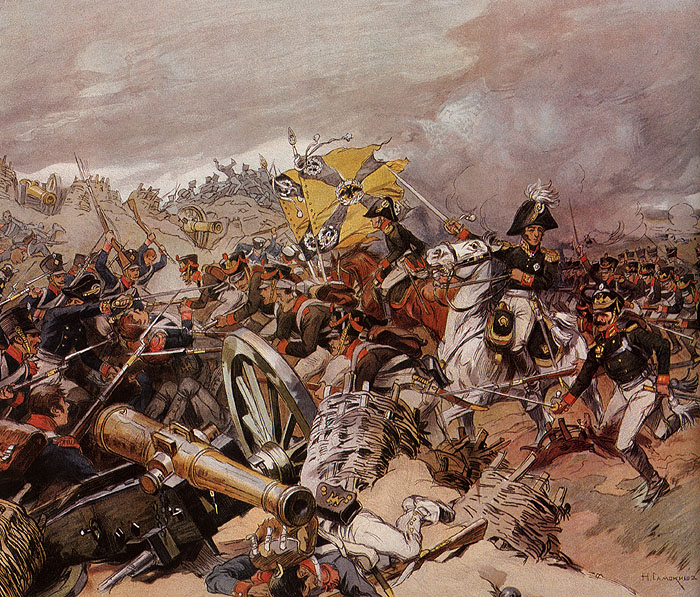
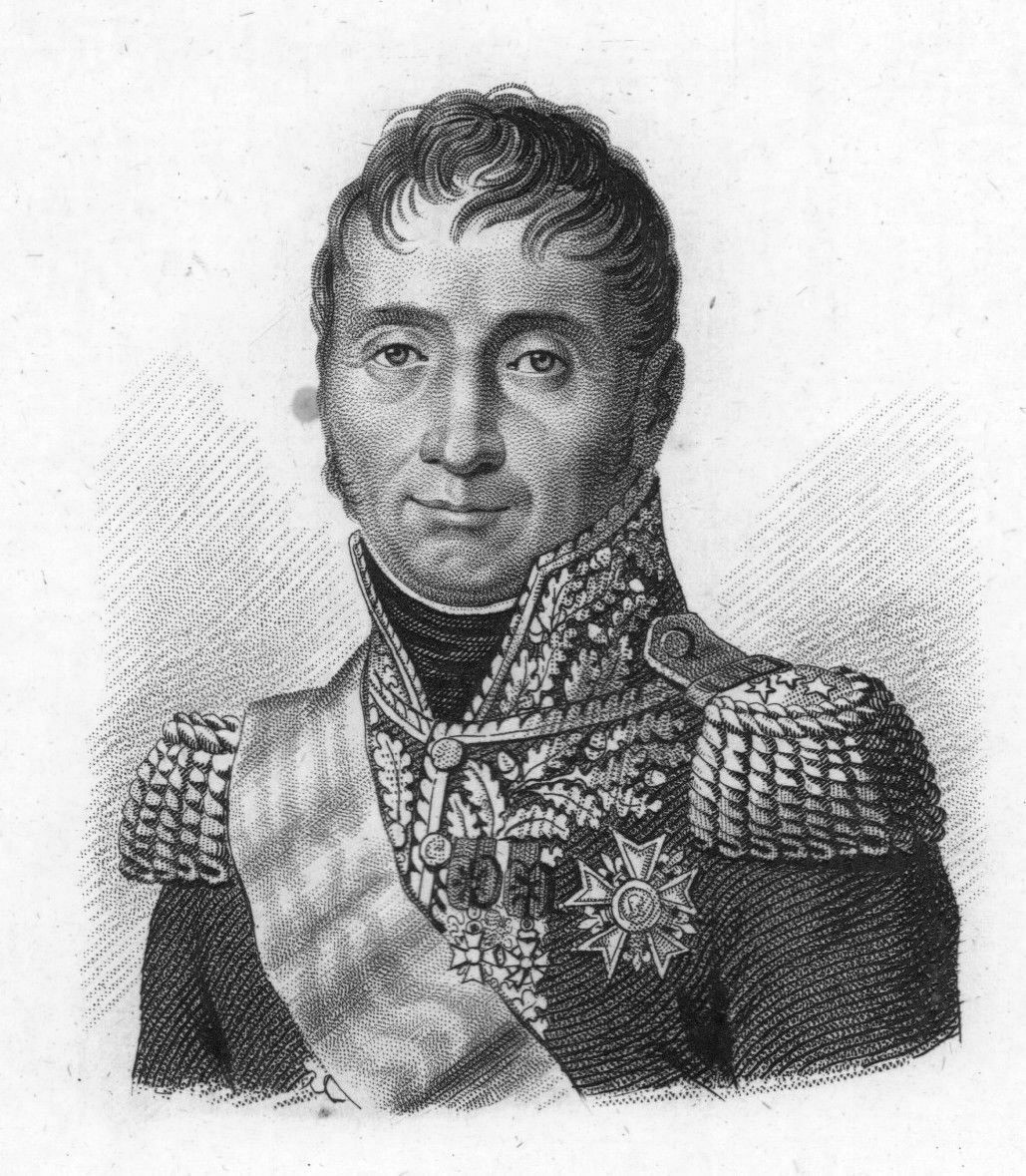
"The 61st [Regiment of Compans' 5th Division] captured their first redoubt," Sergeant Bourgoyne recorded the moment of honor. Segur, too, praised the brave men who seized Shevardino "by a single effort, and with the bayonet." 
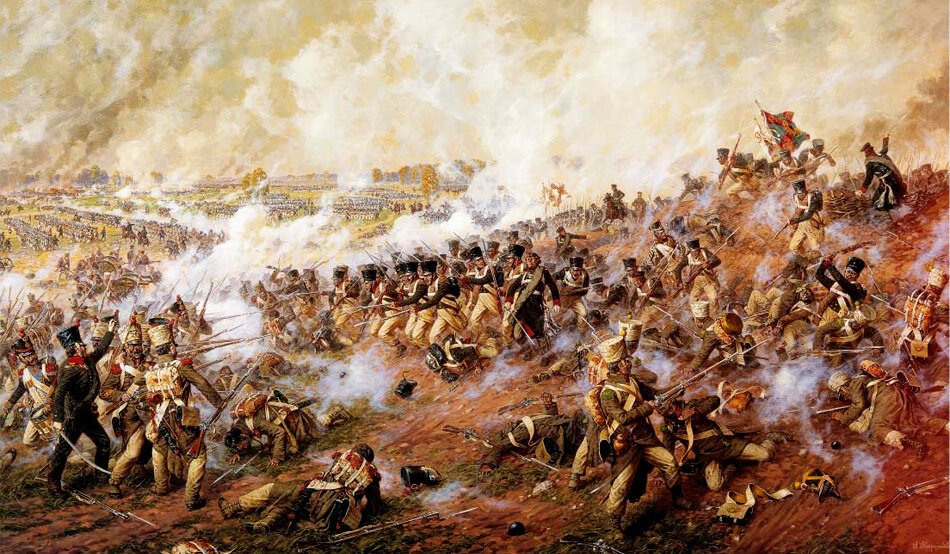
But reinforcements from Bagration shortly arrived, the formidable grenadiers under whom expelled
Compans' men from the redoubt.
Paskevich recorded that "[T]hree times the redoubt changed hands," while Segur wrote "[T]hree times did the 61st recover it from the Russians."

Compans' men from the redoubt.
Paskevich recorded that "[T]hree times the redoubt changed hands," while Segur wrote "[T]hree times did the 61st recover it from the Russians."
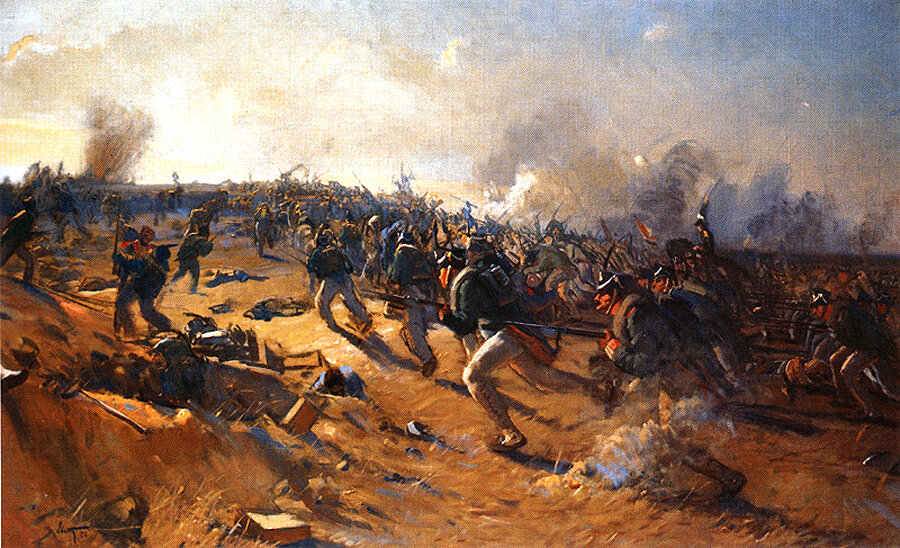
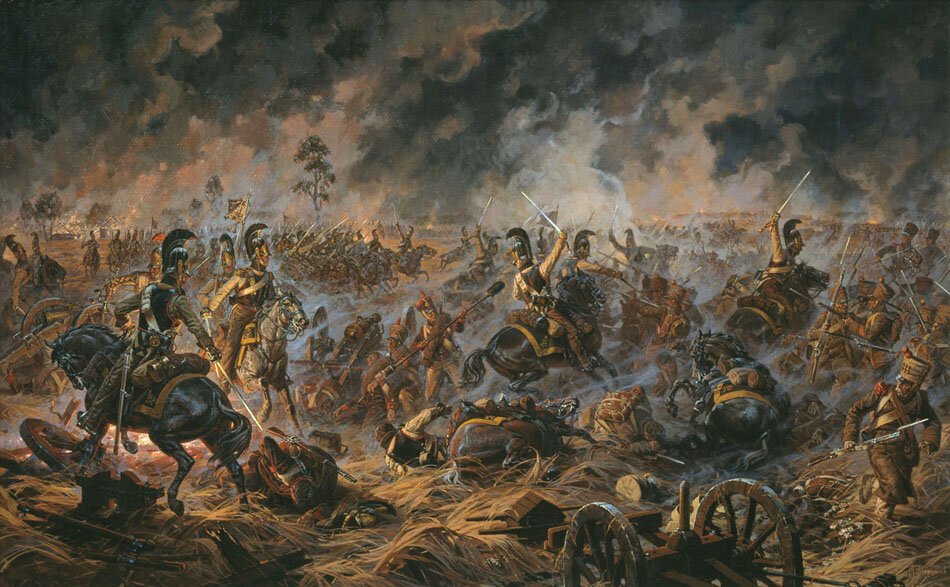
Around 20:00, the 61st Regiment "at last..maintained itself..covered with blood and half destroyed." The French had lost about 3,000 men, and the Russians 6,000-thus confirming Barclay's notion that "that the irregular troops were insufficient to cover the Old Smolensk Road." 
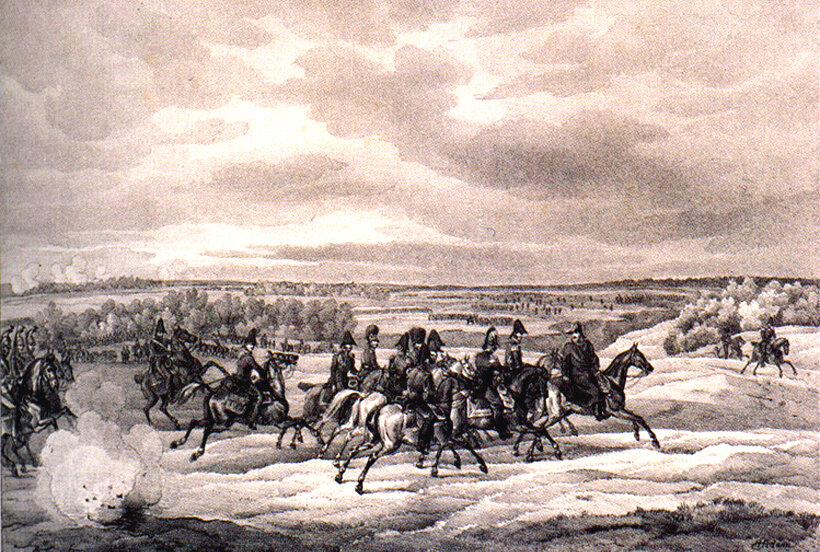
The internal situation of the French, however, did not mirror the triumphant atmosphere within the 61st Regiment.
That night, after a heavy fighting "no rations were issued." (Brandt) On top of everything, possibly from the first frost of the year, Napoleon was falling ill.
That night, after a heavy fighting "no rations were issued." (Brandt) On top of everything, possibly from the first frost of the year, Napoleon was falling ill.

@threadreaderapp I survived. Please unroll.
*22:00.
• • •
Missing some Tweet in this thread? You can try to
force a refresh


